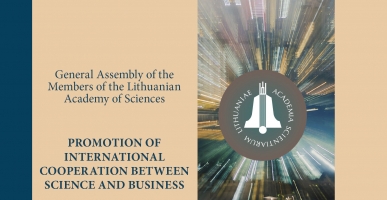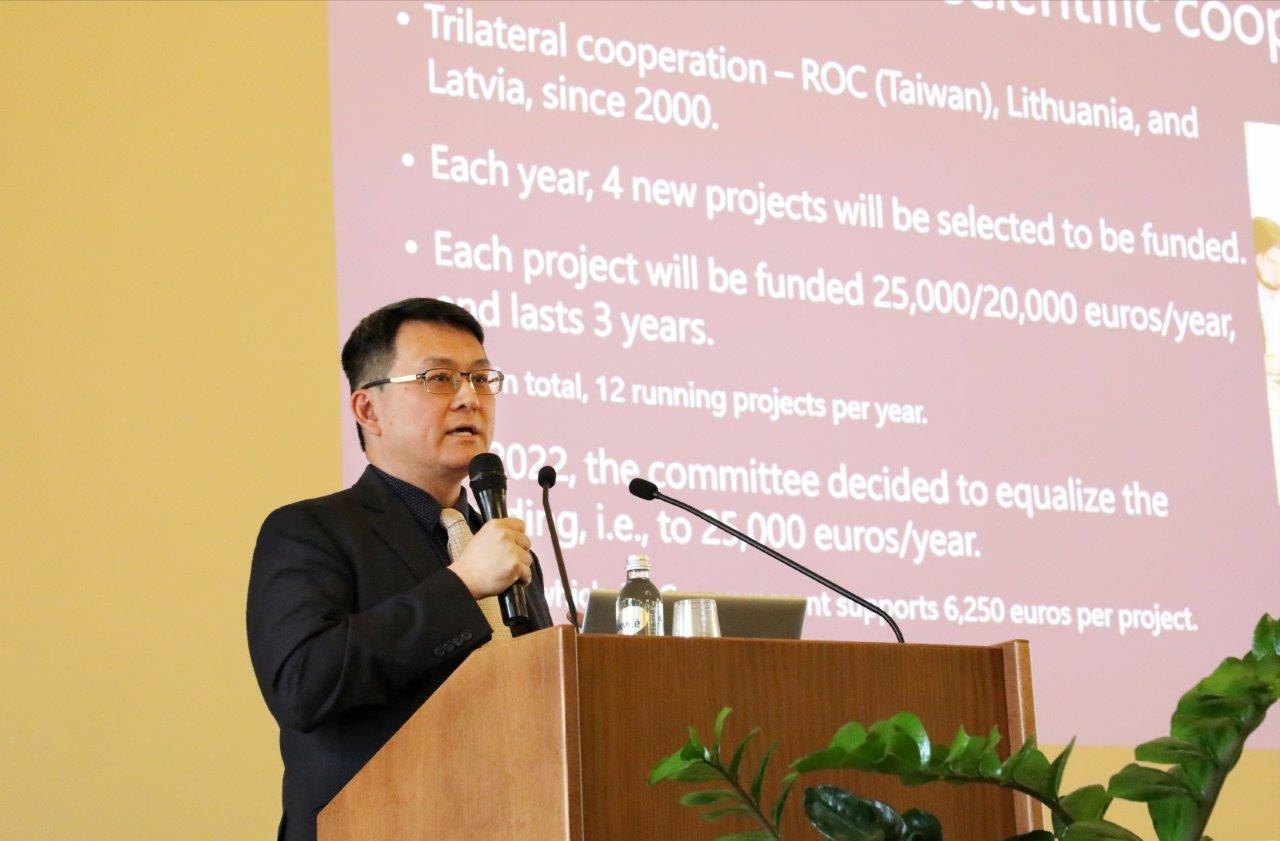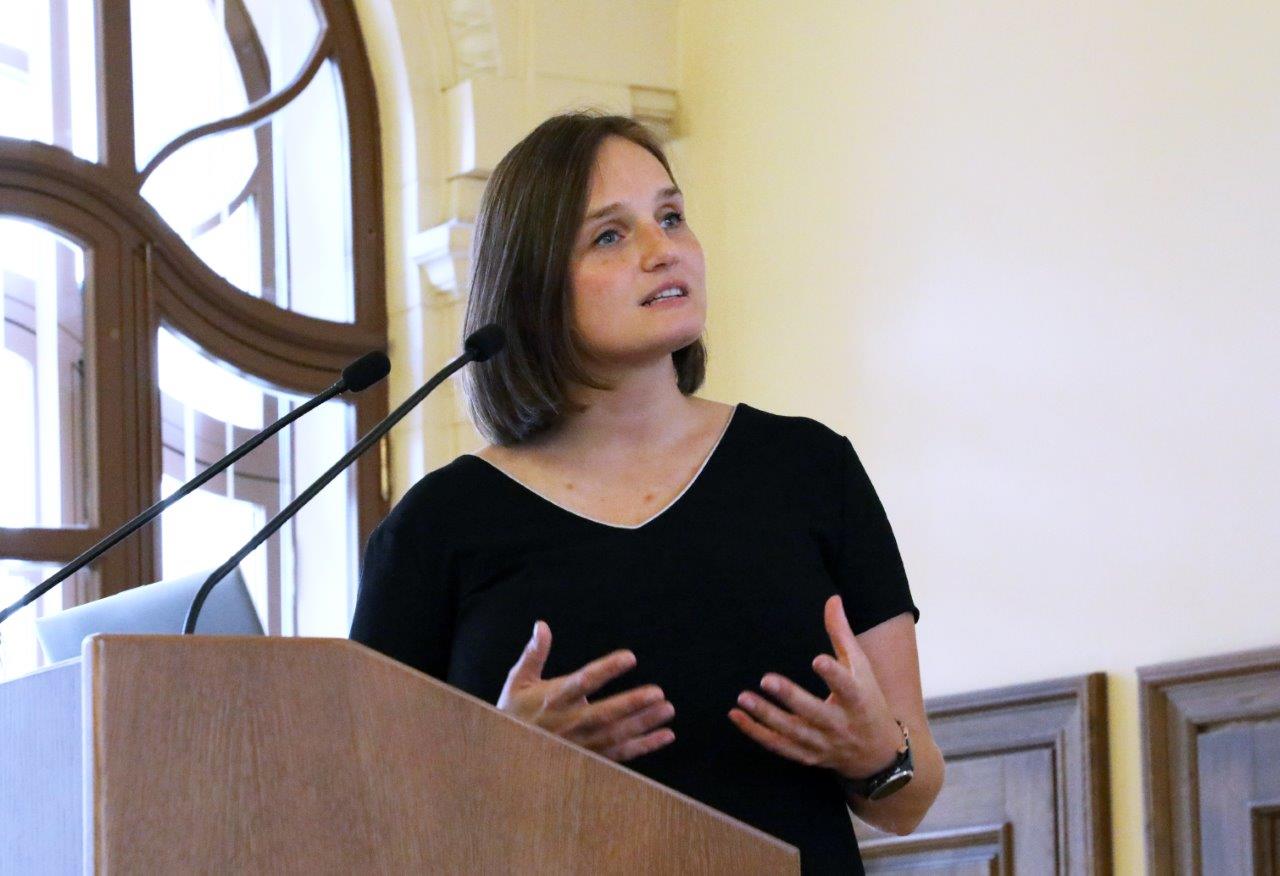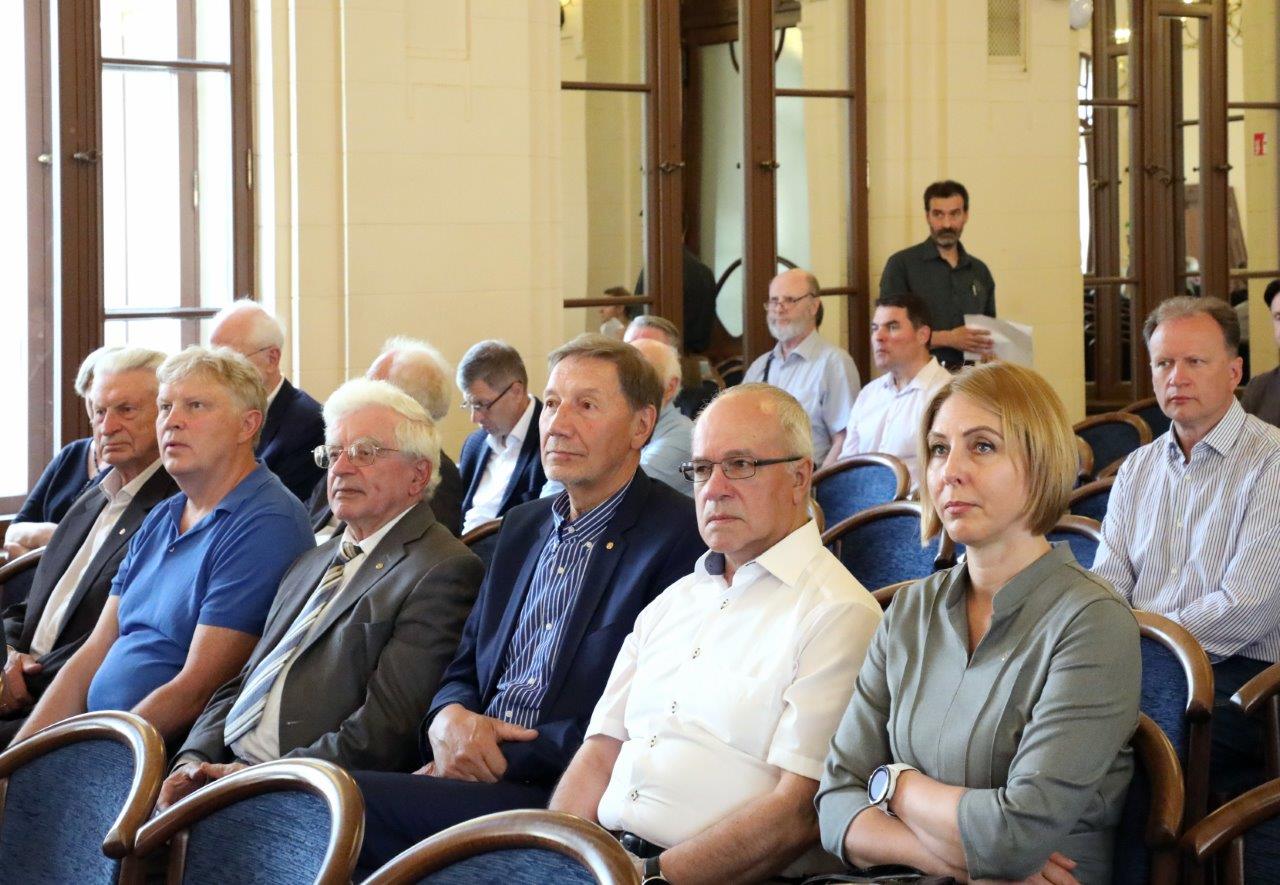Events
About Science, Business, and Scientific Education of Society
26 06 2024
On 20 June 2024, the Lithuanian Academy of Sciences held a general meeting of its members, which this time focused on some aspects of research and business cooperation.
Two talks were delivered at this general assembly. The first one, devoted to research and business cooperation between Lithuania and Taiwan, was given by Da-Chuan Cheng, Director of the Science and Technology Division of the Taiwanese Mission in Lithuania. In his introduction, Prof. Jūras Banys, the president of the Lithuanian Academy of Sciences, reminded the audience that Lithuanian scientists have already been cooperating with Taiwanese scientists for a number of years. Academicians Algis Petras Piskarskas, Benediktas Juodka, and others visited Taiwan a couple of decades ago, and this led to the first joint project that lasted almost twenty years. Biotechnologists and laser physicists are now actively working and exchanging knowledge. Prof. Banys was interested in how the representatives of Taiwan viewed this process.

Da-Chuan Cheng, Director of the Science and Technology Division of the Taiwanese Mission in Lithuania
Da-Chuan Cheng said he was responsible for promoting cooperation between the two countries. Tripartite cooperation (with the Latvians) has been ongoing since 2000, and now there are also bilateral projects between Lithuanian and Taiwanese scientists. Four new projects are funded each year. In 2023, a Lithuanian delegation (Jūras Banys, Zenonas Dabkevičius, vice-president of the Lithuanian Academy of Sciences, Gintaras Valinčius, chair of the Research Council of Lithuania, and others) visited Taiwan, where they toured science parks and visited Macronix, a semiconductor design and manufacturing company and the world’s second-largest supplier of automotive electronics. Last summer, Lithuanian laser scientists visited the National Sun Yat-sen University (NSYSU) and took part in the Laser Technology Symposium, while Gintaras Valinčius visited Academia Sinica, Taiwan’s Academy of Sciences. The agreement between the Research Council of Lithuania and the National Science and Technology Council (NSTC), signed in September, should ensure funding for up to ten research projects and two conferences each year. Calls for proposals have already been launched. Projects in biotechnology and laser science are highly welcome, but the list of science and technology topics is expected to expand in the future. Two conferences are planned for October this year: one on biomedicine in Yilan and one on laser technology in Vilnius. In terms of success stories, the speaker gave the example of Taiwan’s current export of chips, which is worth $184 billion annually (as much as a quarter of the country’s GDP). This success is not only due to Macronix but, above all, to TSMC (Taiwan Semiconductor Manufacturing Company), the world’s dominant semiconductor company. This company is a state-funded project. The semiconductor chip industry was not born overnight. The CEOs of the two companies (Morris Chang of TSMC and Miin Wu of Macronix) studied and worked in the USA for 30 years. Then they returned home, invited their compatriots to join them, and applied their knowledge in Taiwan. It is also significant that TSMC was supported by the government and Macronix by a private company. Speaking about the prospects of cooperation, Da-Chuan Cheng emphasised unique competences of Lithuanian scientists, who ingeniously combine the laser technologies they are developing with the latest semiconductor manufacturing technologies (deep ultraviolet or extreme ultraviolet lithography).

Aistė Lukaševičiūtė, head of the Investment and Project Department of the Kaunas City Municipality
The second speaker was Aistė Lukaševičiūtė, head of the Investment and Projects Department of the Kaunas City Municipality, who talked about the progress of the ‘Science Island’ project of the science popularisation centre initiated by the Lithuanian Academy of Sciences and about the installation of the exposition. She said that Kaunas municipality employees found the feasibility study for the Science Museum/Centre in Google. The study was prepared in 2014 and funded by the Ministry of Education and Science, which prompted the Kaunas Municipality to participate in the competition. By proposing a unique location – the Nemunas Island, Kaunas won the competition against Vilnius, whose municipality proposed adapting the Planetarium for the Science Museum.

Participants in the general assembly of the members of the Lithuanian Academy of Sciences
The developers and operators of the ‘Science Island’ expect around 230,000 visitors a year. The target audience is children aged 7 to 14. The exhibitions are designed to encourage visitors to understand the technological and social changes taking place in the world. The permanent exhibition will include 140 exhibits (reflecting seven themes) and the Children Zone. The exposition is based on experiential, accessible science presented to different target groups and will aim to encourage thinking about environmental impacts and the ways science can contribute to solving various social, ethical, technological, and health issues. The design of the exhibition is aligned with sustainable development goals. The ‘Science Island’ will feature a virtual projection space (Planetarium) with live programming of space travel. There will be four STEAM labs. Aistė Lukaševičiūtė said that the ‘Science Island’ is expected to become a home of science. Its opening is planned for October 2024.
Dr Rolandas Maskoliūnas, Chief Specialist for Public Relations
Photography Virginija Valuckienė
Translated by Diana Barnard
GALLERY
